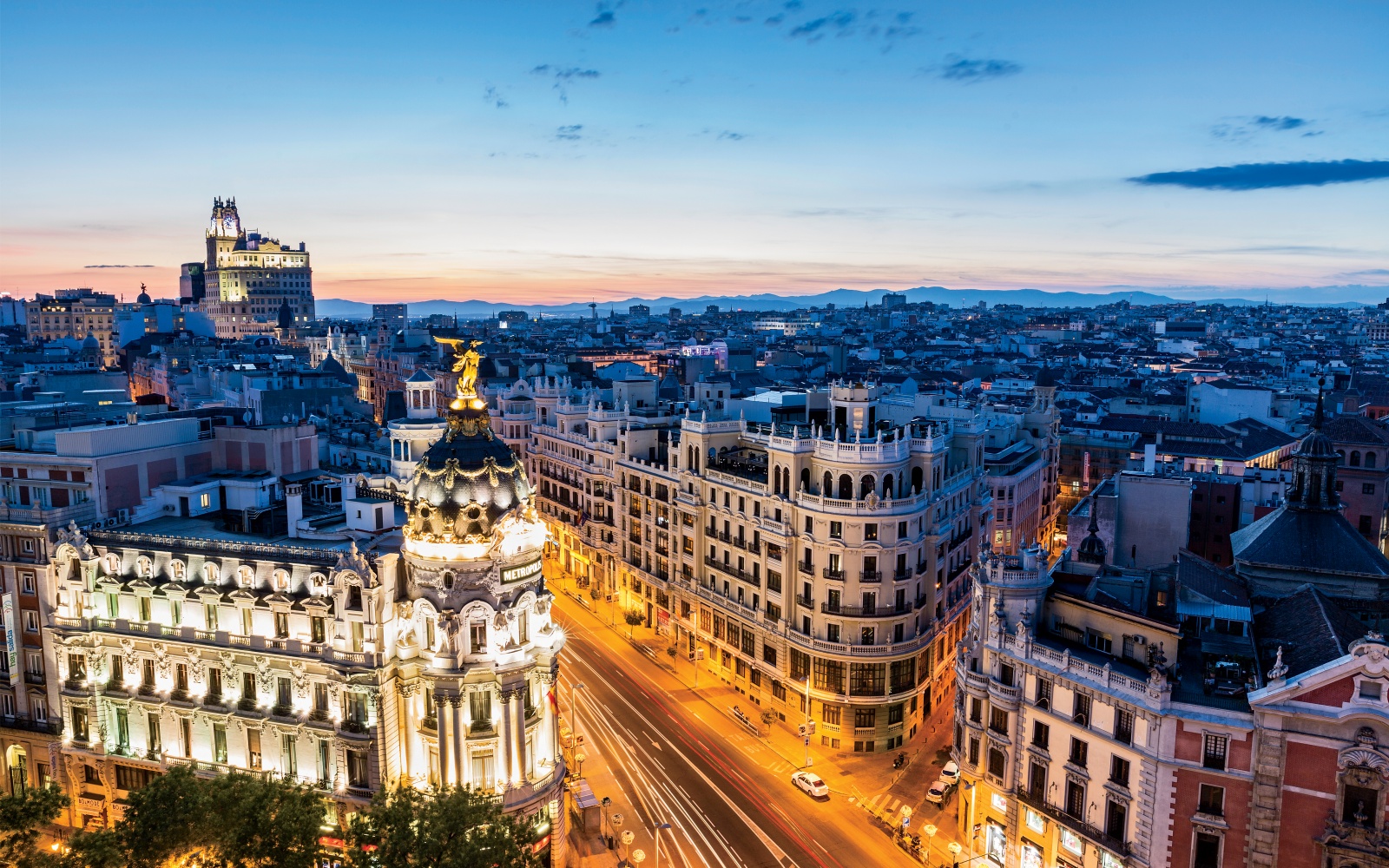
It’s good to be back in Madrid. I love how the grandeur of its regal buildings and endless avenues contrasts with the intimacy of the alleyways of its yellow-washed inner districts - where the spindly iron balconies appear too narrow for a pair of feet. I love the vibrancy and chatter of its bars and food markets, as well as the pride and innate solemnity of its oak-walled tapas bars – in one of these, I sip a teacup full of broth laced with Tio Pepe sherry, which warms me from the inside in seconds. And I love that Madrid is a city full of surprises.
Last year, following a difficult decade, things were starting to look up for Spain. In July, the nation’s unemployment rate fell to an eight-year low (17.2%), reflecting the country’s broader economic recovery, and the International Monetary Fund increased its GDP growth expectations for Spain to 3.1%. Towards the end of last year, however, the Spanish stock market dipped due to uncertainty after the political happenings in Barcelona – a snap poll in December recorded a victory for Catalan separatists, testing investors’ optimism for a stable Spain.
However things pan out in Spanish politics, Madrid as a city has already proven it can hold its own during adversity, and its people have shown remarkable entrepreneurial spirit during uncertain times. Before the recession, Madrid’s interests were rather traditional, with construction, banking and energy the main sectors of industry. A decade later, it seems the need for self sufficiency and to create something from nothing have been conducive to invention. The capital’s strengths have diversified, and an exciting tech scene has blossomed.
Over the past few years, Madrid’s startup scene has garnered significant international attention. Among the pull factors for tech giants and angel investors are Spain’s relatively low wages compared to its tech capital counterparts (London and Berlin), and the smartphone proficiency of the Spanish population (in Europe, Spanish consumers are the most active consumers of mobile wallets, with 25% of them using them regularly), which makes them more open to trying and adopting new mobile-based innovations.
In 2015, Google opened an Innovation Campus in the Spanish capital, which has since created more than 2,300 jobs and raised more than €37.5 million in funding. In 2016, Amazon established a tech hub in the city. And in 2017, venture capital investments in Spain reached $4 billion (double the amount from 2016). Despite new challenges, if Madrid continues apace, with innovation at its heart, it will continue to surprise in 2018.
Check out these impressive startups that began in the Spanish capital
Cabify – step aside Uber. This taxi-hailing app recently raised $100 million in investment, and is available in Spain, Portugal and certain Latin American countries. Users book a taxi through the Cabify app, and choose which kind of vehicle they would like (be it an electric or executive car) and personalise everything from the music that will be playing to whether the driver should open the door for them - and bottled water is always provided.
cabify.com
Jobandtalent – a fresh take on the recruitment process, this mobile-centric platform flips the traditional hiring and interviewing processes on their heads. Users can record video presentations of themselves to showcase their skills (like a digital CV), chat with potential employers, sign contracts and manage their pay via the app. Similarly, businesses are presented with a recommended pool of potential employees, and can use the application to manage the payroll, paperwork and interviewing process of their staff.
jobandtalent.com
Influencity – a data-driven software startup that allows brands to connect with more than four million bloggers, Instagrammers and celebrities around the world, to create influencer marketing campaigns, and select which ones have the most relevant followings. Established in 2014, Influencity now has offices in New York, and clients include MTV, Just Eat, Sony and Uber.
influencity.com
Drone Hopper – designed to help firefight wildfires, this industrial drone has huge potential. It can transport and atomise up to 300 litres of water, and can be adapted to the agricultural realm for tending to crops and eliminating pests.
drone-hopper.com
Stampery – an authentication platform that generates legal evidence using blockchain technology. Rather than printing emails, proposals and contracts and relying on third parties to certify them, Stampery digitalises the process, creating “irrefutable and inexpensive” certification.
stampery.com








